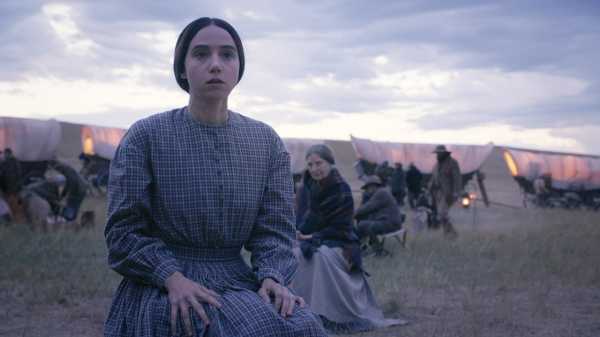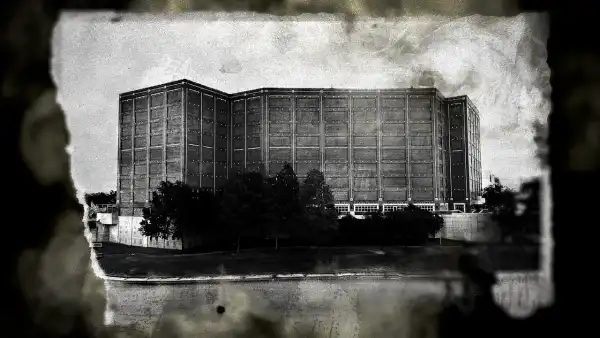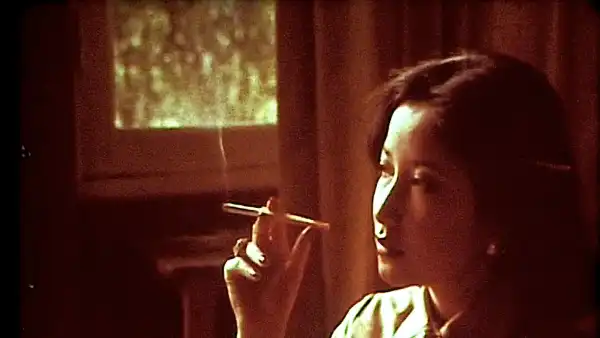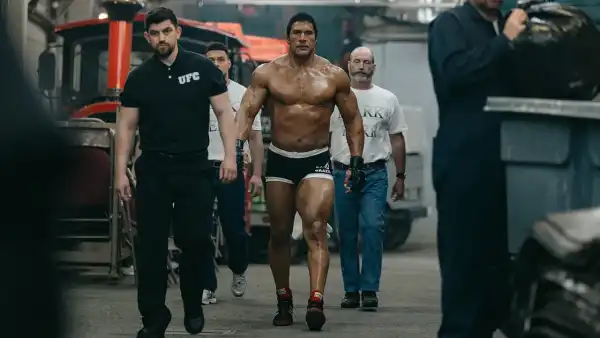
The Western is the most inherently political genre, and, with “The Ballad of Buster Scruggs,” their two-hour-plus anthology of six short Westerns, Joel and Ethan Coen have made an exemplary political film. (It’s already in limited theatrical release and will launch on Netflix this Friday.) It is a movie put together from bits and pieces of cinematic tropes, conventions, and clichés, including ones borrowed from a range of genres, from ingenious physical comedy to romantic lyricism to Gothic horror. But all are united by a giddy Western revisionism centering upon a common theme: the relentless cruelty, wanton violence, deadly recklessness, and cavalier abuses of unchecked power that prevailed in the thinly and casually governed Wild West. Whether with outrageous antics or metaphysical mysteries, the Coen brothers fill the film with a subtle nose-thumbing; they’re laughing up their sleeve at the long-standing exaltation of the West as a primordial realm of titanic heroes, and at a society that even now consumes Western legends and spits them back in the form of historical verities and political pieties.
The movie sets up its action with the droll framework of an old, illustrated book of Western stories, further emphasizing that this movie is—like the Western stories that it parodies—a batch of back-constructed tall tales. The first of them, the title episode, features Tim Blake Nelson as a singing cowboy who makes his way through the lonely desert singing a deliciously mock-melancholy ballad about the rigors of his journey. The dandyish Buster, the “San Saba songbird,” shows up wearing impeccable ecru duds in a dust-brown outpost of dirt-deep outdoorsmen—but Buster turns out to be the toughest of them all. The episode borrows from the musical delights of the Coen brothers’ underappreciated inside-Hollywood comedy, “Hail, Caesar!”—building on the legend of the singing cowboy, and making grand silent-comedy merry of Buster’s gunslinging skills— inside a rowdy saloon filled with familiar Western types and on the forlorn oft-sung street where those quick-drawing denizens face off. Yet, for all its high spirits and rowdy humor, it packs a trick ending that slams home the filmmakers’ sombre political point—and then another that turns it comedic again.
All six episodes are built like cinematic jacks-in-the-boxes, like onscreen O. Henry tales in which the Coens pack their twists with second and even third spring-traps that leave viewers flailing, giddily suspended over the edge of a cliff before the safe ground of another episode slides beneath their feet. The cartoonishness that lurks at the edges of even the most realistic of the Coen brothers’ work comes to the fore here, and the cartoon-like brevity and starkness of the episodes bring their abstract ideas to the fore as well—a philosophical bent that’s the most distinctive aspect of their work, which rises and falls with the quality and power of their ideas. (In this regard, “Buster Scruggs” is far better than their remake of “True Grit,” which undercuts both the philosophy and the drama.) “Near Algodones,” for instance—the second episode in the series and, with “Buster Scruggs,” the simplest and snappiest—is a wildly ironic tale of twists and turns, centered upon a bank robber (James Franco) who faces frontier justice. But, for all its comedy, it suggests the deep and poisonous roots of later—and of current—American trends and practices.
In short, whether they’re comedies or dramas or sidelong genres apart, the short films in “Buster Scruggs” are playthings, but the Coens are playing with no mere frivolity. The toys are knowingly and lovingly crafted, the brothers’ pleasure in the games is authentic, they know the rules well and stick to them even while winking cheerfully at them—until they get to the point at which the rules become absurd. The Coens find the unanswered questions, the points of self-contradiction, and unstable logic that can bring the entire narrative house of cards down. In this regard, they expand the Western beyond movie conventions or practical politics and into the absolute—the picturesque ridiculousness of life that ends, often suddenly, with death. This is not a new idea, more like a Camusian Western, but a little more amusian.
The absurdism in “The Ballad of Buster Scruggs” is sometimes Groucho-Marxist, sometimes Chuck-Jonesian, sometimes Tashlinesque, and sometimes of a bitter Nietzschean guffawltery, as in the fourth episode, “All Gold Canyon,” starring Tom Waits as a gravel-voiced prospector in virgin land—not merely unknown to white settlers but uninhabited by indigenous people as well. It’s a vision of pristine nature that blends Rousseau with Disney, and dramatizes exploration and survival on a stark grid of cruel simplicity. With “Meal Ticket,” the Coens drive to ironic extremes a notion that John Ford placed at the center of several movies: the impotence and superfluity of cultural refinement in the raw and rugged West. The story of an itinerant reciter (Harry Melling) in the employ of a coin-counting impresario (Liam Neeson) dramatizes the predatory abuse of culture and the rhetoric of American ideals by cowboy capitalists whose nostalgic vision is here revealed in all its ugliness.
The longest of the six episodes, “The Gal Who Got Rattled,” feels like a truncated feature, with a wider dramatic arc, a fuller range of characters, and manifold subplots built off the story’s central axis. (It would have been even better if it were either shorter—and as compact as the other episodes—or longer, and more fully developed.) A sister-and-brother team, Alice Longabaugh (Zoe Kazan) and Gilbert Longabaugh (Jefferson Mays), leave the cramped and gossipy comfort of a boarding house, headed by wagon train for Oregon, where Gilbert hopes to marry his sister off to a business partner. The action revolves around the practicalities of the journey, but those practicalities prove to be essentially political. (This is marked drolly with the name of Gilbert’s dog, President Pierce, whose namesake was an anti-abolitionist politician, largely considered a disastrous President, whom Gilbert, a “doughface,” is said to admire unreservedly.) The romantic tale pivots on questions of money and employment, legal matters involving land ownership in Oregon, the fear of conflict with Native Americans, and the absence of any defense other than one’s own access to and prowess with firearms. It also contains one of the Coens’ glorious monologues, a riff that extracts from the casual Western bunk of fireside chat, a nugget of authentic principle—a frontier foreshadowing of the philosophy of pragmatism:
Uncertainty—that is appropriate for matters of this world. Only
regarding the next can we vouchsafe certainty. I believe certainty
regarding that which we can see and touch, it is seldom justified, if
ever. Down the ages from our remote past, what certainties survive?
And yet we hurry to fashion new ones, wanting their comfort.
The Coens make good on this promise of certainty about the next world in the film’s last episode, “The Mortal Remains.” It fuses “Stagecoach” and “The Phantom Carriage” in the most verbally virtuosic of the tales, featuring five travellers thrown together on a journey that’s filled with conversation. The amiable veers toward the confrontational, the philosophical toward the metaphysical (as in a great, macabre peroration by a bounty hunter, played by Jonjo O’Neill), in a sequence where the Coens hint, with a horrific turn of imagination, at the enduring fascination of cruelty inflicted and observed. With a tip of the hat, the Coens send viewers home to consider the nihilism at the core of civilization, the confrontation with death that defines life. As if we needed reminding; yet the flair with which they do so is as memorable as the message.
Sourse: newyorker.com






